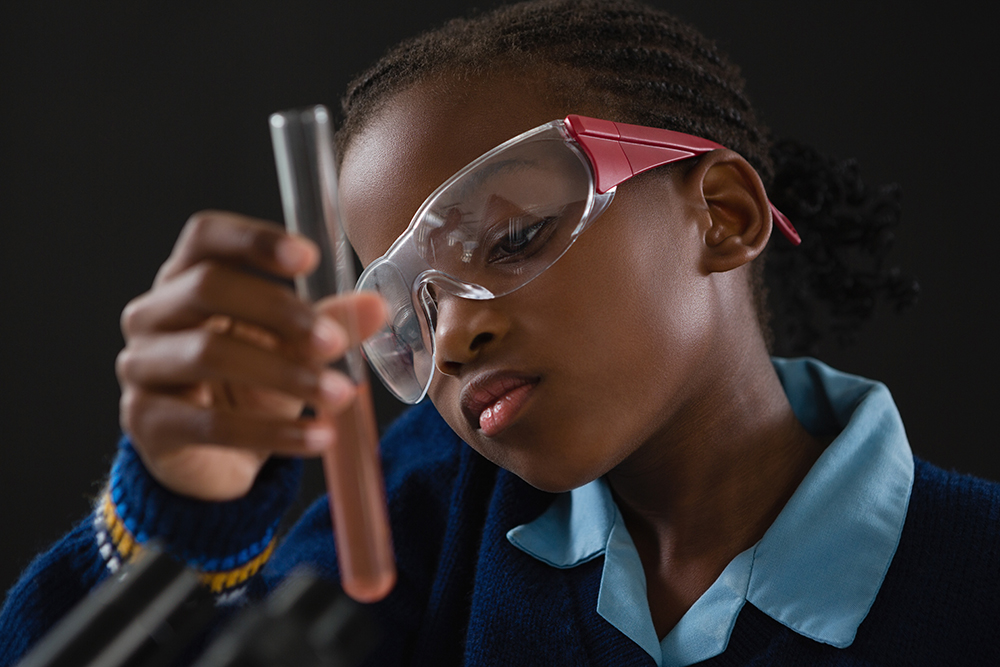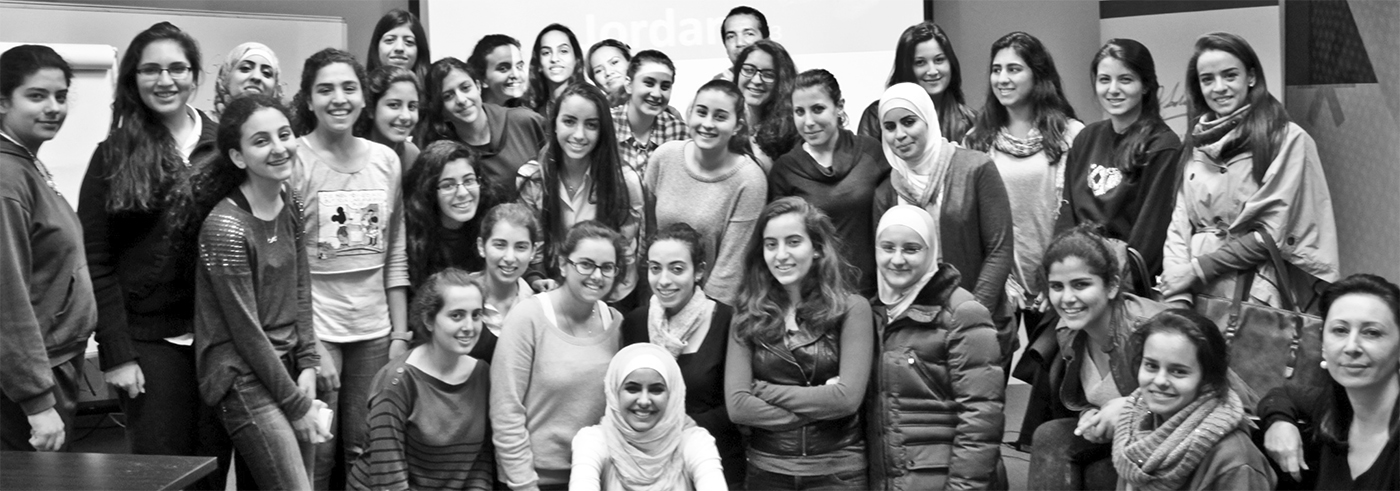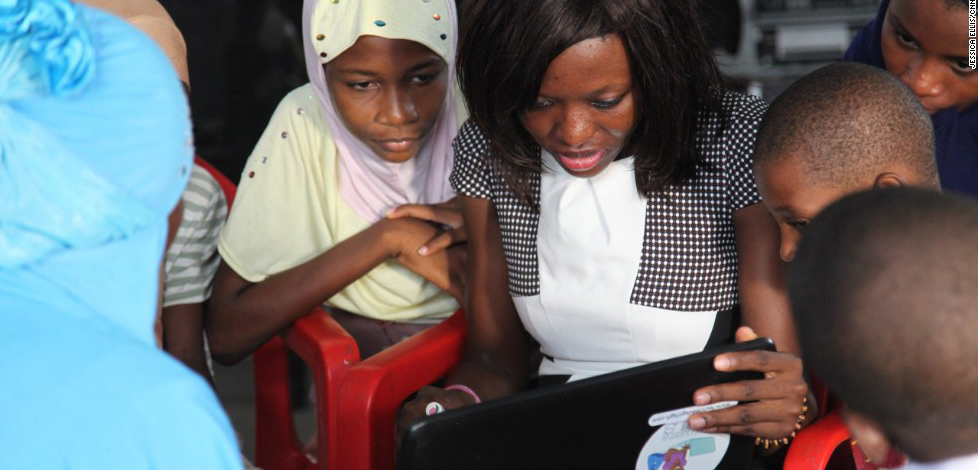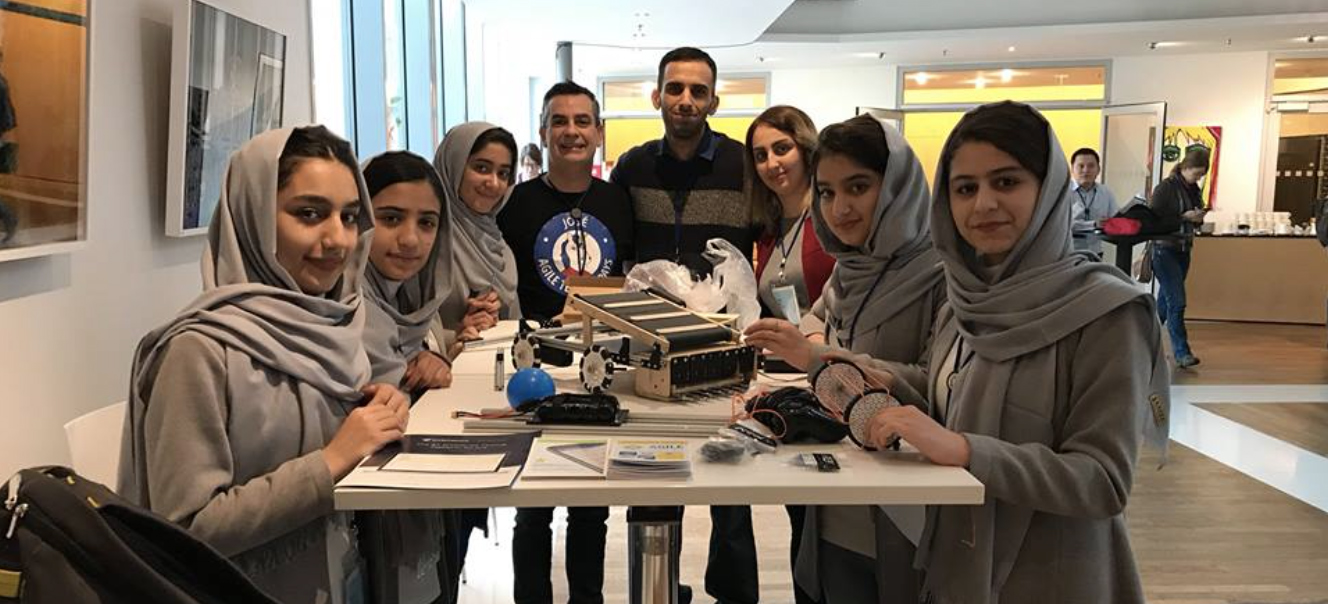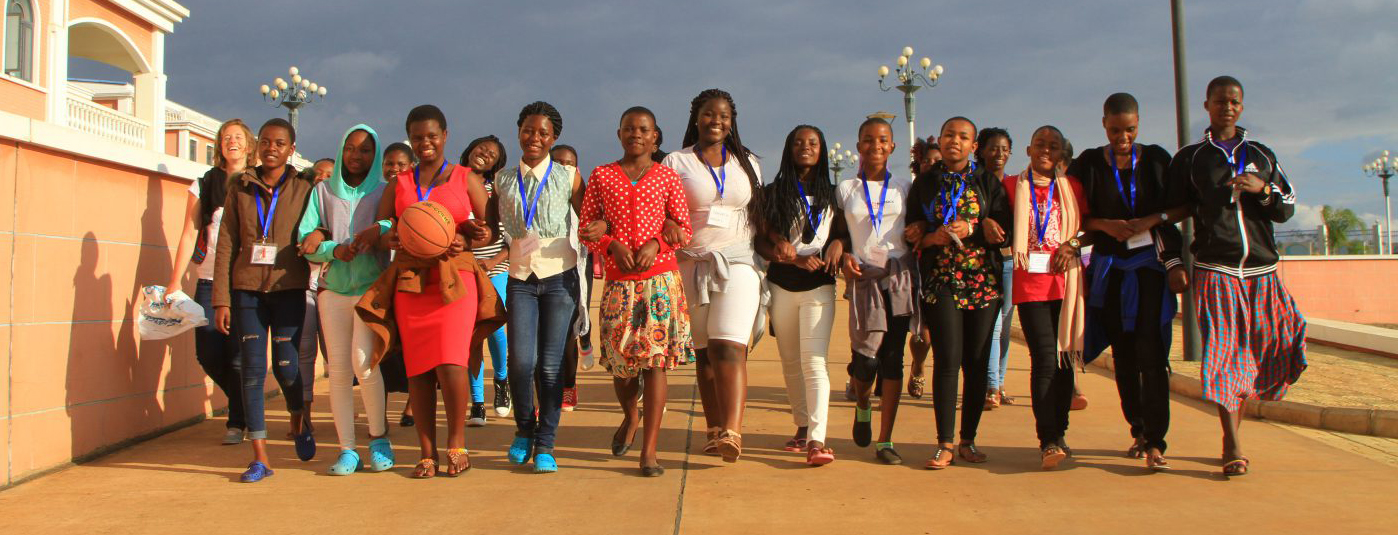Did you know that according to a study in the journal Science, at the age of six, girls start thinking that they are not as clever as boys? At that age, little girls begin to say that boys are “really, really smart”, a category which they don’t fall into. The study also explains how girls refused to participate in games that were presented to them as games that required more intelligence.
Why does this happen? Some studies speak of varying degrees of stereotype attitudes from parents and teachers. It is not surprising, therefore, that, according to data from UNESCO, only 35% of students enrolled in STEM-related degrees in higher education are women and only 3% choose to pursue studies in the field of Information and Communication Technologies (ICT).
Below, we summarise four initiatives to promote the participation of girls, young and adult women in STEM careers around the world, with a special focus on vulnerable contexts.
Girls solving social problems through technological entrepreneurship
Technovation is a technology entrepreneurship programme for girls between 10 and 18 years of age, developed in more than 100 countries, which focuses on providing the opportunity to acquire the skills needed to become entrepreneurs and leaders in technology. It is supported by UNESCO, Peace Corps and UN Women. The project focuses on its participants identifying a problem in their community and creating a mobile, application-based solution to solve it. Skills are then developed to communicate these innovative ideas and convert them into a sustainable business.
Girls from Ghana learn to code in order to change society
In 2012, Regina Agyare decided to take the biggest leap of her life, leaving her well-paid job at a major international bank in Ghana’s capital, Accra, to pursue her dream: to create her own software development company. Inspired by her own experience and with the aim of helping to change the destiny of women in Africa, she created the Tech Needs Girls programme, an educational and mentoring initiative to encourage young women to pursue a career in technology. You can read how she did it, how the initiative works and how many girls’ lives have been changed by her programme here.
A new generation of Afghan women through digital literacy
In Afghanistan, only 10% of the population has access to the Internet. In a country in which women’s role in society is limited to getting married, looking after the home and caring for children and family members, the percentage of women with access to the Internet is almost negligible. In this context, Royah Mahboo, a young entrepreneur with a degree in computer science, founded the Digital Citizen Fund, a programme that provides Afghan (and now Latin American) girls with digital literacy training. Discover Royah’s story here, and find out how she is using technology as a weapon to break cultural impositions and stereotypes.
Women in science: an endless chain
Did you know that only 26% of STEM workers are women? In order to reverse this trend and reduce the large gender gap that still exists in this field, Women In Science (WiSci) was created, a STEAM summer camp for secondary school girls from around the world that aims to empower teenage girls to pursue careers in STEAM, promoting intercultural learning and the development of ideas that promote global social welfare. After the camp, participants take what they have learnt back to their home communities. It may take the form of a presentation, workshop, science fair, classroom activity, etc. You can see how it works here.



